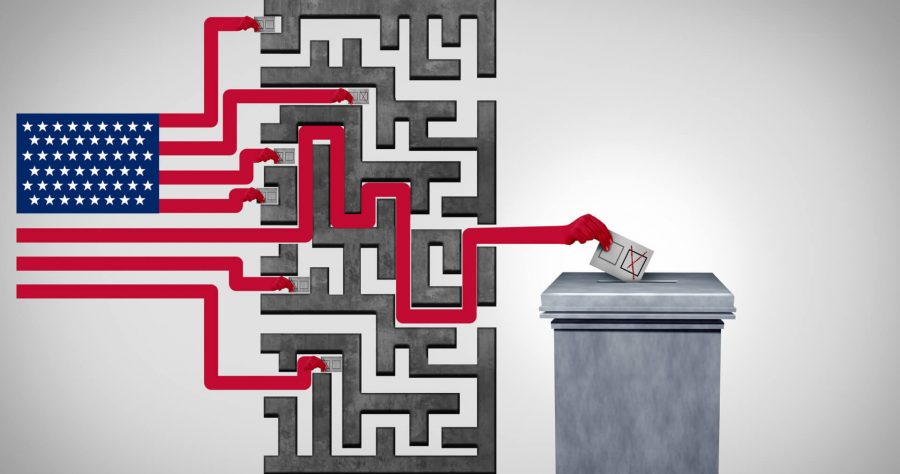Shepherdstown, W.Va., – After the 2020 election and the mass disinformation campaign, where many conservatives voiced distrust in the federal election integrity, there was a nationwide rise in voter restrictive laws. Nationwide there are 361 bills, in 47 states, that aim to restrict voting rights, particularly in the area of absentee and mail-in voting.
Unfortunately, West Virginia was one of those 47. House Bill 565 would have:
- Revoked automatic voter registration.
- Cut the early voting window, eliminating one of the Saturday’s workers had to vote.
- Move absentee ballot request deadline by five days.
- Any voter who had not voted in the last two years can be purged from voting rolls.
This is despite West Virginia’s near-record-setting voter turnout of 802,726. Of which, 408,145 were mail-in and absentee.
This number is the highest since the presidential election of 1960 when West Virginia had nearly 50,000 more people.
These numbers are from the Secretary of State, Mac Warner. Who, despite commending West Virginia’s election integrity, was seen at a ‘Stop the Steal’ rally. As well as testifying in congress against the For the People Act, a bill that would bring massive voter expansive reforms to the federal level.
This was, as Representative John Doyle (D), said, “Mac Warner’s bill.”
How was this stopped?
After HB 565 was approved by the state senate, it moved to the House Judiciary Committee. This was when Vice-Chairman Moore Capito (R) received major pushback from house Democrats and the West Virginia branch of the American Civil Liberties Union.
The West Virginia ACLU sent hundreds of emails and phone calls to petition the committee members. This, along with the continued pressure from House Democrats brought Vice-Chair Capito to ‘table the bill’.
While alone this would be concerning, Representative John Doyle clarified the process as well as brought some optimistic news. Doyle asserts that all bills are ‘tabled’ if not signed into law.
Meaning this combined effort has successfully ‘killed’ this bill from passing into law.
Moreover, lead sponsor John Doyle, has pushed for HB 565 to be ‘strike-and-inserted’ by their bill, HB 2814, a voter expansion bill.
A strike-and-insert is the act of replacing all policies of one bill and replacing them with another.
House Bill 2814 would:
- Allow no-excuse absentee voting,
- Remove voting roll purges of ‘inactive’ voters,
- Expand early voting by a minimum of 5 days,
- Expand drop box locations,
- Create a penalty for interfering in another person’s ability to vote.
- Up to $1000 fine and/or up to a year in jail.
The fight is not over.
Not only is HB 2814 not approved nor passed, but Mac Warner could also push for restrictive voting laws again.
However, these bills could not be pushed for in 2022, as it is an election year, and creating voting legislation in an election year is nigh-impossible. Meaning, the earliest Mac Warner could push for this again would be 2023, under a new legislature.
Through his fight, Representative Doyle has been instrumental in defeating HB 565 and is optimistic for the future.
“The push [for HB 565] might not be as strong in the future. I see this as a great victory.”
